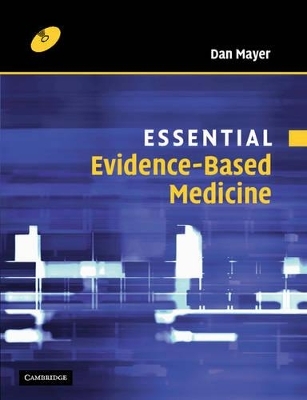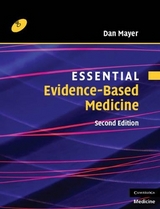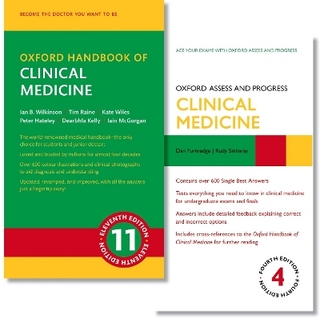
Essential Evidence-Based Medicine
Cambridge University Press
978-0-521-54027-8 (ISBN)
- Titel erscheint in neuer Auflage
- Artikel merken
Evidence Based Medicine (EBM), using the best evidence in the literature for the best care for an individual patient, sounds very simple. Yet, most medical students and physicians do not have the mathematical background or training to critically evaluate published research. This 'users guide' to EBM helps you become a more discriminating reader of the medical literature. An introduction to scientific methods and study design then leads on to a better understanding of measurements and sources of bias. There is a brief introduction to statistics and hypothesis testing (Type I and II errors) and measures of risk and efficacy. The second half of the book teaches medical decision-making including discussions of the clinical examination and sources of bias in that examination, likelihood ratios, sensitivity, specificity, and predictive values and advanced topics in medical decision making. This is an ideal introductory text for medical students and all health-care professionals.
Dr. Mayer is a Professor of Emergency Medicine and the Theme Leader of the Evidence Based Health Care course at Albany Medical College in Albany, New York. He has been practising emergency medicine for twenty-four years. For the last 10 years he has developed and taught a required four-year course called Evidence Based Health Care at Albany Medical College. He has been a tutor at Evidence Based Health Care seminars around the world and has spoken frequently about teaching Evidence Based Medicine to educators, medical school faculty, undergraduate medical students, and residents at conferences internationally and in the USA.
Preface; 1. A brief history of medicine and statistics; 2. What is evidence based?; 3. Causation; 4. The medical literature: an overview; 5. Searching the medical literature; 6. Study design and strength of evidence; 7. Instruments and measurements: precision and validity; 8. Sources of bias; 9. Review of basic statistics; 10. Hypothesis testing; 11. Type I errors and number needed to treat; 12. Negative studies and type II errors; 13. Risk assessment; 14. Multivariate analysis; 15. Randomized clinical trials (RCTs); 16. Scientific integrity and the responsible conduct of research; 17. Applicability and strength of evidence; 18. An overview of decision making in medicine; 19. Sources of error in the clinical encounter; 20. The use of diagnostic tests; 21. Utility and characteristics of diagnostic tests: likelihood ratios, sensitivity and specificity; 22. Bayes' theorem, predictive values, post test probabilities and interval likelihood ratios; 23. Comparing tests and using ROC curves; 24. Incremental gain and the threshold approach to diagnostic testing; 25. Sources of bias and critical appraisal of studies of diagnostic tests; 26. Screening tests; 27. Practice guidelines and clinical prediction rules; 28. Decision analysis; 29. Cost effective analysis; 30. Outcome analysis; 31. Meta-analysis; Appendix 1. Common medical journals; Appendix 2. Glossary; Appendix 3. Bibliography; Appendix 4. Levels of evidence and grades of recommendations; Appendix 5. Overview of critical appraisal; Appendix 6. Common statistical tests; Appendix 7. Useful Web sites; Appendix 8. Formulae; Appendix 9. Proof of Bayes' Theorem; Appendix 10. Balance sheet approach to calculating threshold values; Index.
| Erscheint lt. Verlag | 17.6.2004 |
|---|---|
| Reihe/Serie | Essential Medical Texts for Students and Trainees |
| Zusatzinfo | 40 Tables, unspecified; 14 Halftones, unspecified; 92 Line drawings, unspecified |
| Verlagsort | Cambridge |
| Sprache | englisch |
| Maße | 190 x 248 mm |
| Gewicht | 882 g |
| Themenwelt | Medizin / Pharmazie ► Medizinische Fachgebiete |
| Studium ► Querschnittsbereiche ► Epidemiologie / Med. Biometrie | |
| ISBN-10 | 0-521-54027-5 / 0521540275 |
| ISBN-13 | 978-0-521-54027-8 / 9780521540278 |
| Zustand | Neuware |
| Haben Sie eine Frage zum Produkt? |
aus dem Bereich

